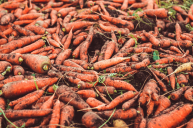There's no question our poor food habits lead to waste — a lot of it — but a new study from the University of Edinburgh indicates just how much: one-fifth. In a study titled "Losses, inefficiencies and waste in the global food system," published in the journal Agricultural Systems, researchers looked at 10 key factors in the world food system — things like crop production and harvesting and food consumption — taken from the United Nations' Food and Agriculture Organization.
Videos by Wide Open Country
The findings are grim. Almost half of harvested crops — approximately 2.1 billion tons — are lost each year through over-consumption, consumer waste, and waste prior to consumption. Inefficient production processes, especially in livestock production, accounted for 40 percent of total harvested crop loss.
"In aggregate, all livestock consume 1.08 billion tonnes of feed (dry matter), but produce just 240 million tonnes of meat, milk and eggs (again dry matter)," lead researcher Peter Alexander explained to New Atlas. "The livestock also graze grassland and consume forage crops, which brings the total livestock inputs to 4 billion tonnes."
Also shocking are the figures related to over-consumption, or eating more than is nutritionally required. According to the study, the world population consumes about 10 percent more food than it needs, along with a full 9 percent that's tossed in the bin.
As Alexander concludes, "Reducing losses from the global food system would improve food security and help prevent environmental harm. Until now, it was not known how over-eating impacts on the system. Not only is it harmful to health, we found that over-eating is bad for the environment and impairs food security."
It's all food for thought, the next time you sit down for dinner.




